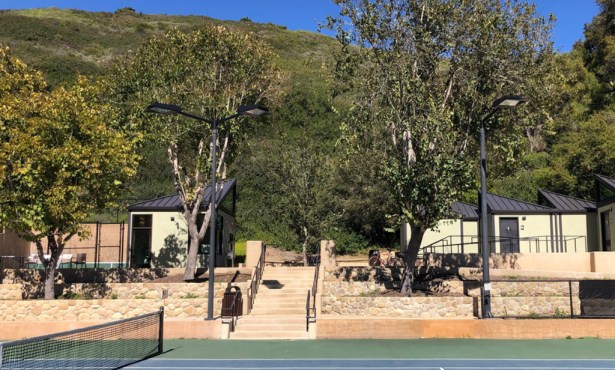When the Last Veteran Dies
A Chat with Ken Williams, Author of China White
by Hudson Hornick
 Having helped Santa Barbara’s homeless
Having helped Santa Barbara’s homeless
population for 30 years, Ken Williams is no stranger to what it
means to be of service. His stint as a U.S. Marine ended upon his
return from the Vietnam War, after which he graduated from UCSB
with a degree in psychology. Like many, he stayed in Santa Barbara
and, unlike most, decided to advocate for the homeless. He’s left a
30-year legacy of kindness, spending his days trying to get the
homeless off the streets and into shelters with empathy and
coercion.
Williams has written extensively on homelessness and the Vietnam
War, highlighting the struggle of United States veterans and the
hidden social effects of war. His new novel, China White,
further explores the emotional ties that bind the
Vietnamese-American community with Vietnam War vets. The book
chronicles the events surrounding the fictional Shane Wilson, a
Vietnam CIA field agent who, 30 years later, is forced to
collaborate with an ex-North Vietnamese soldier to investigate the
influx of a particularly potent form of heroin before it destroys
their community. As literature, China White is deep,
powerful, and cultivates a sense of here and now in the reader. As
social commentary, it is introspective and bold, addressing angles
and social connotations of war previously not discussed. Williams
and I recently had a chance to talk about his book.
What made you want to write China
White? I suppose the hidden after-effects of war. I’m
a Vietnam veteran myself and Vietnam sensitized me to people
damaged beyond their control.
How do you mean? Well, there are long-term
consequences of war that just can’t be seen by veterans returning
from war today. For example, those returning from Iraq on their
second, third, even fourth tours of duty; what’s happening to them
now will still affect them 20 years from now. They might not even
know it now, but war desensitizes you to things. You know, to kill
someone you have to de-humanize them, make them something you’re
not. Life cheapens. Right now the Iraqi racism is high, I’m sure.
It’s drummed into you in boot camp. Some deal with it better than
others; some hold on to it all their lives, for some the evil
really gets to them, and others simply let it go. What’s hard to
learn, as Shane did in China White, is that we’re all the
same in the end.
There are plenty of Vietnam vets in the homeless
population. Is that where your desire to serve the homeless
stems? Perhaps. There’s something really brutal about war
and to see it we have to look at the veterans. The high numbers of
homeless Vietnam veterans is not a quirk. I just want people to be
aware that just because you have never been over there fighting
does not mean a war isn’t going on. And even when it’s over, it’s
not really over. War ends when the last veteran dies. I thought
we’d learned our lesson in Vietnam — to not blindly follow our
questionable leaders — but I guess we didn’t.
How do you feel about the county’s 10-year plan to
address homelessness? I’m wary of plans. I’m not too sure
about them in the past, but I have faith in the two men backing the
plan. I feel they’re really capable guys who have good hearts and
mean well. The key is to look at the homeless we have now, and
prevent a person from reaching that point. But I remain
optimistic.
4·1·1
Ken Williams will sign copies of China White as part of
CALM’s Authors’ Luncheon on Saturday, March 10 at 10 a.m. at Fess
Parker’s DoubleTree Resort. For reservations, call 682-3925.


